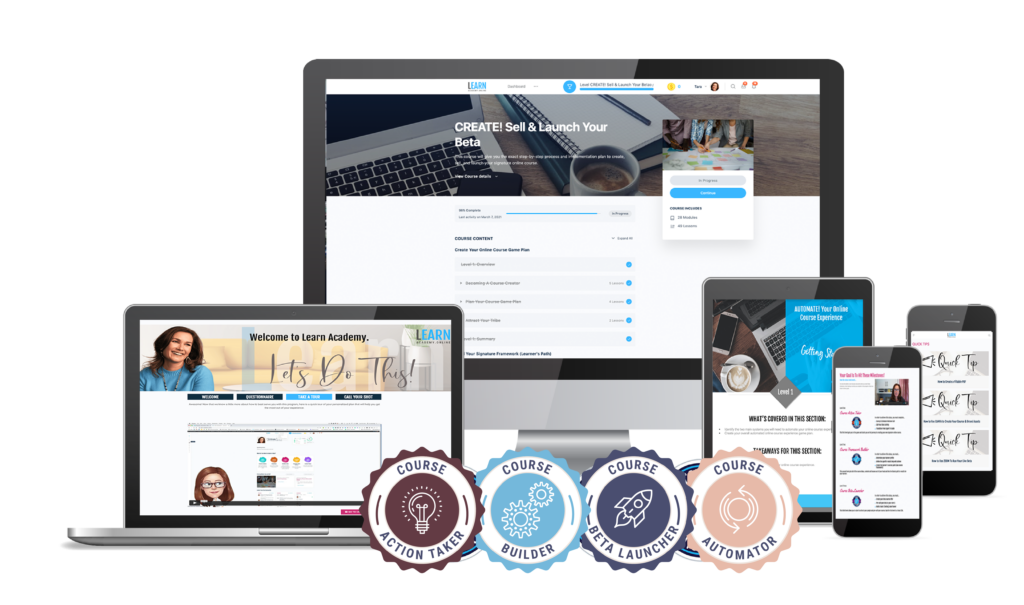The Business Specialization Strategy That’s Costing You $$
Sarah was brilliant. After 15 years in corporate strategy, she launched her consulting practice offering “comprehensive business solutions.” She could handle operations, marketing, strategy, team development, financial planning, and digital transformation. Her LinkedIn headline read: “Helping businesses succeed through integrated solutions.”
Six months later, she was struggling to break $75/hour while competing against hundreds of other “business consultants.”
Then Sarah made a decision that changed everything. She focused exclusively on “revenue optimization for SaaS companies experiencing churn.” Within 90 days, she was charging $300/hour with a three-month waiting list.
Sarah discovered what successful specialists have known for decades: a strategic business specialization strategy doesn’t limit your market, it liberates you to dominate it.
Why Business Specialization Strategy Is Your Competitive Advantage
In today’s oversaturated market, being “pretty good at everything” is the kiss of death. Buyers don’t want a jack-of-all-trades; they want the undisputed expert who lives and breathes their specific challenge.
The Economics of Specialization
The financial impact of implementing a business specialization strategy is dramatic and measurable:
Premium Pricing Power: Specialists command 200-400% higher rates than generalists. A general business consultant might charge $150/hour, while a conversion rate optimization specialist charges $400/hour for the same time investment.
Faster Sales Cycles: When prospects have a specific problem, the decision is binary—you’re either the right fit or you’re not. This clarity accelerates decision-making and increases close rates by an average of 65%.
Automatic Referrals: Referrals flow naturally to specialists. When someone mentions they’re struggling with employee retention in tech startups, your network immediately thinks of you—the specialist—not the generalist down the street.
Reduced Marketing Costs: Instead of competing against every consultant in your city, you’re competing against 3-5 true specialists globally. Your target audience is specific, your messaging is precise, and your marketing budget goes further.
The Psychology Behind Business Specialization Strategy Success
Specialization works because it aligns with fundamental human psychology and decision-making patterns:
The Expert Halo Effect: When someone is perceived as an expert in one area, their credibility in related areas automatically increases. A workplace culture specialist is more likely to be trusted with leadership development than a general HR consultant.
Risk Reduction: Hiring decisions are fundamentally about risk management. Specialists represent lower risk because their track record in similar situations is extensive and visible.
Social Proof Acceleration: It’s easier to find testimonials, case studies, and referrals when you’ve solved the same type of problem repeatedly. This social proof compounds your credibility exponentially.
Pattern Recognition Advantage: Specialists develop deep pattern recognition within their niche, allowing them to diagnose problems faster and prescribe solutions with greater confidence than generalists.
The Five-Stage Business Specialization Strategy Framework
After helping hundreds of consultants and experts successfully implement specialization strategies, I’ve identified a proven framework that minimizes risk while maximizing results.
Stage 1: Specialization Sweet Spot Analysis
Your ideal specialization sits at the intersection of market demand, your unique capabilities, and your personal interests. Too often, experts choose specializations based on what they think the market wants, ignoring their own strengths and passions.
The Market Demand Assessment: Research the size and growth trajectory of potential niches. Use tools like Google Trends, LinkedIn’s audience insights, and industry reports to validate demand. Look for markets that are:
- Large enough to support your revenue goals (minimum $100M total addressable market)
- Growing at least 10% annually
- Underserved by true specialists (high demand, low specialist supply)
- Willing and able to pay premium prices for expertise
The Capability Inventory: List your top 10 professional skills and experiences. For each one, identify:
- How many years of experience you have
- What results you’ve achieved
- What unique perspectives or methodologies you’ve developed
- Which skills energize vs. drain you
- Where you have the most compelling success stories
The Interest and Energy Matrix: Sustainable specialization requires genuine interest and energy. Map your capabilities against your passion levels:
- High Capability + High Interest = Prime specialization candidates
- High Capability + Low Interest = Revenue opportunities but burnout risk
- Low Capability + High Interest = Learning and development opportunities
- Low Capability + Low Interest = Avoid completely
Stage 2: Competitive Landscape Mapping
Before committing to a specialization, thoroughly understand the competitive environment. The goal isn’t to avoid competition entirely—some competition validates market demand—but to identify gaps where you can establish a unique position.
Direct Competitor Analysis: Identify 10-15 professionals who serve your potential specialization:
- What specific services do they offer?
- How do they position themselves?
- What are their apparent strengths and weaknesses?
- What pricing models do they use?
- How sophisticated is their marketing and thought leadership?
Positioning Gap Identification: Look for underserved segments within your chosen specialization:
- Industry verticals (e.g., “for healthcare companies” vs. “for tech startups”)
- Company size segments (e.g., “for enterprises” vs. “for growing businesses”)
- Geographic focuses (e.g., “for European markets” vs. “for emerging markets”)
- Methodology approaches (e.g., “data-driven” vs. “design-thinking” approaches)
- Outcome focuses (e.g., “cost reduction” vs. “revenue growth”)
Thought Leadership Content Audit: Review the content produced by specialists in your space:
- What topics are oversaturated?
- What questions aren’t being answered well?
- What format opportunities exist (video, podcasts, tools, assessments)?
- Where can you bring a fresh perspective or unique experience?
Stage 3: Minimum Viable Specialization (MVS) Testing
Before fully committing to a specialization, test market response with a minimum viable specialization approach. This reduces risk while gathering real market feedback.
The 90-Day MVS Test:
- Update your LinkedIn headline and summary to reflect your chosen specialization
- Create 12 pieces of specialist-focused content (blog posts, LinkedIn articles, videos)
- Reach out to 50 people in your target market with specialized insights
- Track response rates, engagement levels, and conversation quality
- Measure how the market perceives your expertise credibility
Key Success Metrics:
- Engagement Rate: Are people responding to and sharing your specialized content?
- Inquiry Quality: Are the conversations you’re having more strategic and higher-value?
- Referral Relevance: Are people referring specialists-level opportunities to you?
- Personal Energy: Do you feel energized or drained by the specialist focus?
Iteration Signals: Be prepared to adjust based on market feedback:
- Low engagement may indicate poor market fit or positioning issues
- High engagement but low conversion might suggest messaging problems
- Strong response from unexpected segments may reveal better opportunities
- Personal energy drain indicates need to adjust focus or approach
Stage 4: Brand Architecture and Positioning
Once you’ve validated your specialization direction, it’s time to build a brand architecture that positions you as the undisputed expert in your chosen niche.
The Specialist’s Brand Pyramid:
Foundation Level – Core Expertise: Your deepest technical knowledge and unique methodologies. This is what you know that others don’t, developed through years of focused experience.
Credibility Level – Proof Points: Results, testimonials, case studies, and recognition that validate your expertise. This is evidence that your knowledge creates real outcomes.
Authority Level – Thought Leadership: Original insights, frameworks, and perspectives that advance the industry’s thinking. This is how you contribute new knowledge to your field.
Influence Level – Market Position: Recognition as the go-to expert, speaking opportunities, media mentions, and industry advisory roles. This is how the market perceives your status.
The Three-Pillar Positioning Statement: Develop a positioning statement that clearly communicates:
- Who you serve: The specific type of client or market segment
- What problem you solve: The particular challenge or outcome you address
- What makes you different: Your unique approach, experience, or methodology
Example: “I help SaaS companies with $10M+ ARR eliminate customer churn through my proprietary retention optimization framework, developed after analyzing 200+ SaaS customer journeys.”
Stage 5: Go-to-Market Specialization Strategy
With your specialization validated and brand positioned, it’s time to systematically capture market share in your chosen niche.
Content Authority Strategy: Become the definitive voice in your specialization through strategic content creation:
- The 100-Article Challenge: Commit to writing 100 articles about your specialization over 12 months
- The Definitive Guide Approach: Create comprehensive resources that become industry standards
- The Weekly Insights Habit: Share regular observations, trends, and predictions in your niche
- The Case Study Documentation: Publish detailed success stories (with client permission) that demonstrate your methodology
Strategic Networking and Relationship Building: Target relationship building within your specialization ecosystem:
- Industry Events: Attend conferences, meetups, and workshops specific to your niche
- Professional Associations: Join and actively participate in relevant industry organizations
- Peer Specialists: Build relationships with non-competing specialists who serve adjacent areas
- Ecosystem Partners: Connect with vendors, platforms, and service providers in your space
Referral System Development: Create systematic approaches to generate referrals within your specialization:
- Client Referral Programs: Implement formal programs that reward clients for referrals
- Partner Referral Networks: Develop reciprocal referral relationships with complementary specialists
- Alumni Networks: Stay connected with former colleagues who may encounter your specialization needs
- Professional Referral Systems: Build relationships with recruiters, consultants, and advisors in your space
Advanced Business Specialization Strategies
The Specialization Stack Approach
Rather than choosing a single narrow specialization, some experts successfully build a “stack” of related specializations that reinforce each other:
Vertical Stack: Serve the same market with multiple related services Example: Customer experience strategy → Customer journey optimization → Customer retention programs
Horizontal Stack: Apply the same core methodology across related markets Example: Agile transformation for tech companies → Agile transformation for financial services → Agile transformation for healthcare
Evolution Stack: Deepen specialization over time as expertise and market position develop Example: General marketing consultant → Digital marketing specialist → Conversion rate optimization expert → E-commerce CRO specialist
The Platform Specialization Model
Some specialists build their authority by creating platforms, tools, or methodologies that become industry standards:
Assessment Tools: Develop diagnostic tools that help prospects identify problems you solve Certification Programs:Create training programs that certify others in your methodology Software Platforms: Build or partner on technology solutions that embed your expertise Industry Reports: Publish regular research that establishes you as the data authority in your niche
The Specialization Licensing Strategy
Advanced specialists create revenue streams by licensing their expertise to others:
- Methodology Licensing: Allow other consultants to use your frameworks under license
- Training Programs: Teach your specialization to other professionals
- Franchise Models: Create systems that allow others to deliver your specialized services
- Certification Bodies: Establish standards and certifications in your specialization area
Common Business Specialization Strategy Mistakes
Specializing Too Narrowly Too Quickly
While focus is important, specializing too narrowly can limit market size below viability thresholds. Start with broader specializations and narrow over time as you understand market dynamics.
Warning Signs:
- Total addressable market under $50M
- Fewer than 1,000 potential clients globally
- Seasonal or cyclical demand patterns
- Heavy dependence on single industry or technology
Choosing Specialization Based on Competition Avoidance
Avoiding competition entirely often means avoiding viable markets. Some competition validates demand and creates opportunities for differentiated positioning.
Ignoring Personal Interest and Energy
Specializations chosen purely for market opportunity, without personal interest, lead to burnout and poor performance. Sustainable specialization requires genuine enthusiasm for the subject matter.
Failing to Evolve the Specialization
Markets change, technologies evolve, and client needs shift. Successful specialists continuously evolve their focus while maintaining their core positioning.
Measuring Your Business Specialization Strategy Success
Financial Metrics
Average Project Value: Specialists typically see 200-500% increases in average project value within 12-18 months of focused positioning.
Hourly Rates: Track rate progression as your specialist reputation develops. Successful specialists often double their rates within the first year.
Revenue Predictability: Specialization typically leads to more predictable revenue through repeat clients and referral patterns.
Profit Margins: Specialists enjoy higher margins due to premium pricing and operational efficiencies from repeated similar work.
Market Position Metrics
Share of Voice: Track your prominence in industry conversations, social media mentions, and search rankings for specialist keywords.
Speaking Opportunities: Measure invitations to speak at industry events, participate in podcasts, and contribute to industry publications.
Media Mentions: Track coverage in industry publications, inclusion in expert roundups, and citation in research reports.
Referral Quality: Monitor the quality and fit of inbound referrals as an indicator of market perception.
Operational Metrics
Sales Cycle Length: Specialists typically experience shorter sales cycles as decision-making becomes more binary.
Close Rate: Track improvement in proposal acceptance rates as your specialist positioning develops.
Client Retention: Specialists often enjoy higher client retention due to deeper expertise and specialized relationships.
Referral Rate: Measure the percentage of new business coming from referrals versus active business development.
The Long-Term Specialization Journey
Year 1: Foundation Building
- Validate specialization choice through market testing
- Build initial content library and thought leadership presence
- Develop core case studies and success stories
- Establish basic referral systems and network relationships
Year 2-3: Market Recognition
- Achieve top-of-mind awareness in your specialization
- Command premium pricing and selective client acceptance
- Speak regularly at industry events and conferences
- Publish authoritative content that shapes industry thinking
Year 4-5: Industry Leadership
- Influence industry standards and best practices
- Mentor other specialists and thought leaders
- Create scalable revenue streams through licensing, training, or platforms
- Expand internationally or into adjacent specializations
Beyond Year 5: Legacy Building
- Establish lasting impact on your industry or field
- Create intellectual property that generates ongoing revenue
- Build institutions or organizations that outlast your direct involvement
- Transition from practitioner to industry elder and advisor
Your 90-Day Business Specialization Strategy Implementation Plan
Days 1-30: Assessment and Decision
Week 1: Complete the Specialization Sweet Spot Analysis
- Inventory your capabilities and experiences
- Research market demand in potential specialization areas
- Assess your personal interests and energy levels
Week 2: Map the competitive landscape
- Identify existing specialists in your potential niches
- Analyze positioning gaps and opportunities
- Research pricing and service model benchmarks
Week 3: Conduct stakeholder interviews
- Survey past clients about your most valued capabilities
- Interview industry contacts about market needs and gaps
- Gather feedback on potential specialization directions
Week 4: Make your specialization decision
- Choose your focus based on data gathered
- Develop your initial positioning statement
- Create your minimum viable specialization test plan
Days 31-60: Testing and Validation
Week 5-6: Launch your MVS test
- Update all professional profiles with specialist positioning
- Begin creating specialist-focused content
- Start conversations with target market contacts
Week 7-8: Execute market outreach
- Contact 50 prospects with specialized insights
- Publish 4-6 pieces of specialist content
- Track engagement and response metrics
Days 61-90: Implementation and Optimization
Week 9-10: Analyze test results and refine positioning
- Review engagement metrics and market feedback
- Adjust positioning based on market response
- Finalize your specialization strategy
Week 11-12: Build momentum systems
- Establish content creation and publishing rhythms
- Develop referral generation systems
- Create measurement and tracking processes
The Specialization Success Mindset
Successful implementation of a business specialization strategy requires a fundamental mindset shift from scarcity to abundance thinking.
From “I Might Miss Opportunities” to “I Create Better Opportunities”
Generalists worry about saying no to work. Specialists recognize that every “no” to misaligned work is a “yes” to better opportunities. When you turn down a $5,000 general consulting project, you preserve capacity for a $50,000 specialist engagement.
From “I Need to Appeal to Everyone” to “I Need to Be Perfect for Someone”
Marketing to everyone means appealing to no one. Specialists accept that their messaging will repel some prospects—and that’s exactly the point. The goal isn’t maximum appeal; it’s perfect fit with ideal clients.
From “Expertise is What I Know” to “Expertise is What I’ve Done”
True specialization is built on a foundation of specific, measurable results in focused areas. The market doesn’t care what you know in theory; they care what you’ve accomplished in practice.
From “I’m Competing on Price” to “I’m Creating Categories”
Specialists don’t compete—they create categories. Instead of being a better version of existing solutions, specialists become the only solution for specific problems.
The business specialization strategy isn’t just about focusing your services—it’s about focusing your entire professional identity around creating exceptional value in a specific area. When you commit fully to specialization, you don’t limit your opportunities; you create a monopoly on the problems you solve best.
The specialists who dominate their markets understand that in a world of infinite choice, the biggest risk isn’t being too focused—it’s being too broad to matter. Your specialization isn’t a constraint on your potential; it’s the key that unlocks it.
Choose your focus. Commit completely. Become indispensable. Want help with this strategy? Schedule a discovery call with Tara today.







